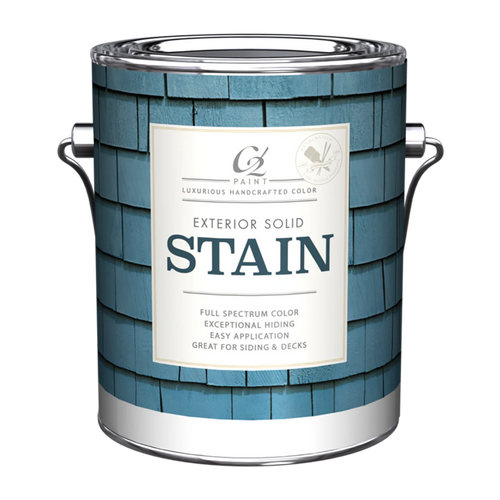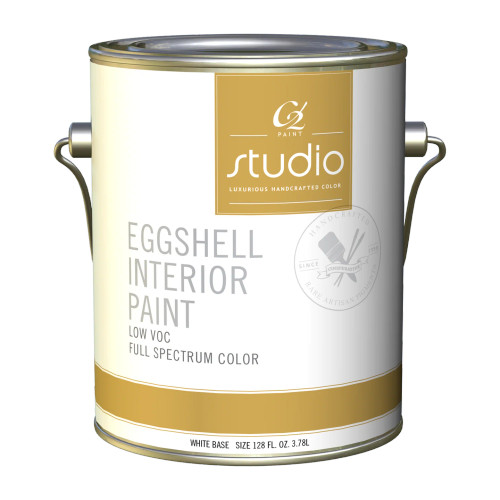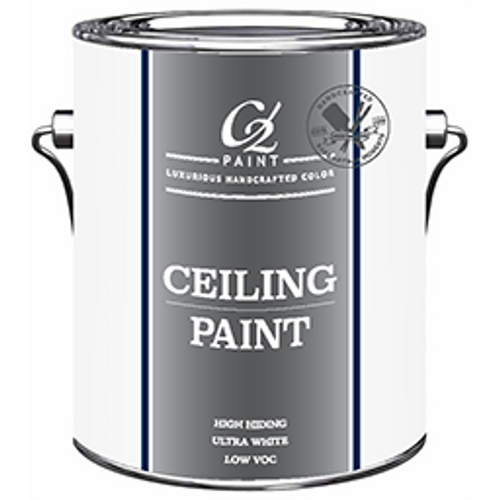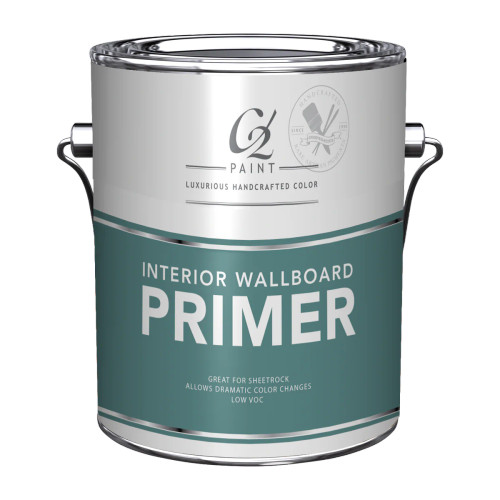Description
C2 Exterior Latex Stain (C5000) — Solid-Color Acrylic for Vertical Wood
Plain-English overview: A solid-color, 100% acrylic stain that protects vertical wood (and other properly prepared exteriors) while leaving the natural texture visible. It covers uniformly, grips tenaciously, and weathers beautifully. Low odor, soap-and-water cleanup.
Why choose it
- Looks like stain, protects like paint: Opaque color that shows wood texture.
- Tough exterior performance: Excellent adhesion, color retention, and weather resistance.
- Fast turnaround: Quick dry and recoat lets you finish in a day under normal conditions.
- Low sheen, low VOC: Comfortable to use; easy cleanup.
- Tintable: Color it with the full C2 palette for precise matches.
Best uses
- Vertical wood siding, shingles, fences, and trim
- Previously painted exteriors that need a unified, low-sheen look
- Cured masonry and other compatible, properly prepared substrates
- For decks, floors, or other horizontal/wear surfaces, we recommend C2 Guard for Wood
Coverage & key specs
- Covers: ~400–450 sq ft/gal on smooth siding (less on rough/porous surfaces)
- Dry time: Touch ~30 minutes; recoat 2–4 hours; reaches full service hardness in ~14 days
- Finish: Flat (approx. 2–6% @ 85°)
- VOC: < 50 g/L
- Application temp: Apply when product/surface/air are above 50°F (10°C). Protect from freezing.
- Cleanup: Warm, soapy water
- Sizes: Quarts & Gallons
How to apply (step-by-step)
- Wash & prep: Remove dirt, chalk, grease, and mildew (rinse well and dry). Scrape loose paint; feather sand edges. Dull glossy areas. Repair and sand smooth.
- New wood: Ensure any mill glaze is removed. Apply 1-2 finish coats directly to bare wood. For severe staining woods (T1-11, cedar, redwood), spot-prime with a stain-blocking oil/alkyd primer first.
- Previously painted: Sound, dulled surfaces can be finished with 1–2 coats. Prime only where needed for adhesion or stains.
- Masonry: Must be fully cured; remove chalk/loose paint, then finish with 1–2 coats.
- Stir well—do not thin. Brush (quality synthetic), roll (≥3/8" nap), pad, or spray.
- Spray setup: Airless tip ~0.012"–0.015"; apply a uniform, properly loaded coat. Back-brush on textured siding.
Pro tips
- Work in the shade and on cool surfaces to avoid lap marks; maintain a wet edge.
- End-grain drinks stain—seal cuts and ends to minimize moisture entry.
- Rough-sawn siding may require more product; don’t overspread if hiding looks thin.
- Color jumps (very dark → very light) may need a second finish coat for uniformity.
FAQs
- Is this a paint or a stain?
- It’s a solid-color acrylic stain: it hides like paint but leaves the wood’s surface texture visible.
- Do I need a primer?
- Usually no on clean, sound wood—apply 1–2 finish coats. Prime only for severe tannin bleeds (cedar/redwood, T1-11) or spot-repairs that need stain blocking.
- Can I use it on masonry?
- Yes, once the masonry is fully cured and properly cleaned. Apply 1–2 finish coats.
- Can I spray it?
- Yes. Use an airless 0.012"–0.015" tip and back-brush on textured/rough substrates for best penetration and uniformity.
- Where shouldn’t I use it?
- Don’t use on decks, floors, or any horizontal, high-wear surface. We recommend C2 Guard for these location.






